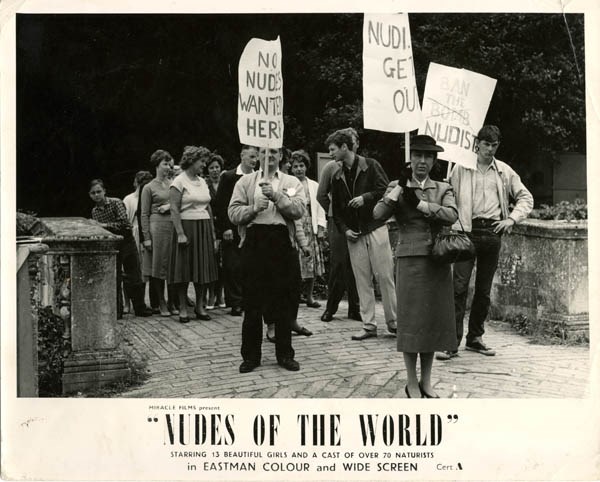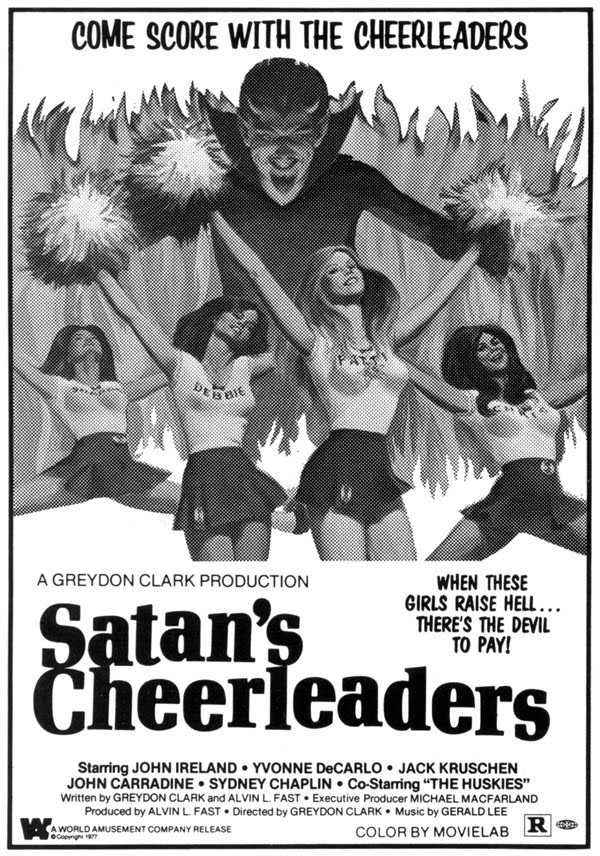Looking at Fandor’s list of films that pass the Bechdel test for female representation in film, one can’t help but notice a number of sexploitation movies, erotic films that feature gratuitous sex and female nudity. One would think that these films would be the least likely to pass the Bechdel test; and so it begs the question, how exactly do they pass? And is there anything progressive about them with regard to how they reflect female points of view?
Watch Bechdel-sploitation: Erotic Films that Pass the Test
One of the older films on the list is Nudes of the World, a British smash hit in the early sixties, Back then, nudity in films was still largely prohibited. But films depicting the nudist lifestyle were categorized as educational films, so their nude scenes were allowed. Of course one wonders if most audiences were watching for educational value or pure titillation. But from a certain angle, you may notice a feminist consciousness emerging against the repressive forces that try to shame women for their bodies.
One of the most prolific makers of nudie films was a woman. Doris Wishman was a bold mixer of genres, as seen in Hideout in the Sun, in which two bank robbers escape to a nudist colony, and one of them falls in love with a nudist. The setup allows Wishman to switch from crime movie to romantic melodrama to soft core porn without batting a lash. The nudity is presented almost non-sexually, as an affirmative celebration of woman in her most open, natural state, and a counterpart to the greed and anxiety of the male characters.

By the early seventies, female sexuality took on a politically radical charge in some films, as seen in Sayuri Ichijo: Following Desire. Actress Hiroko Isayama won a Japanese critics award for Best Actress for her bold portrayal of a working class erotic dancer trying to perfect her craft, only to be shut down by the police for obscenity. For its rich female characters and fearless support of female sexuality as a form of artistic expression, the film was voted as one of Japan’s 100 greatest films of the 20th century.
But as the seventies wore on and sex in films became more commonplace, the stakes grew considerably lower. Satan’s Cheerleaders passes the Bechdel test, but the most one can say about it is that it takes the ultra-conservative notion that feminism was the work of the devil and subversively literalizes it. The films of schlockmeister Al Adamson demonstrate the co-opting of female sexual liberation for cheap stimulation. On the surface, his films Naughty Stewardesses and Blazing Stewardesses celebrate young women enjoying a jetsetting lifestyle, but these characters are really half-naked sexual foils for the males to get their kicks. In Blazing Stewardesses, one scene that passes the Bechdel criteria involves the madame of a brothel recruiting the stewardesses to work for her.
These films, with their cheap, pandering scenes of nudity and sex are the last place people would look for any sort of progressive depiction of women, but you can find their imprint on more prestigious films. Clip, directed by woman director Maja Miloš, won multiple awards at the Rotterdam International Film Festival for its unflinching look at a Serbian teenager’s rebellious lifestyle of partying, drugs and sex. But at times it’s unclear whether this film is exploring or exploiting its subject. Scenes that pass the Bechdel test involve girls talking about how sexy their body parts are; was this the kind of feminist dialogue Alison Bechdel had in mind? We’ve come a long way to when Doris Wishman was the only female sexploitation director: now a whole generation of young women have control over how to express their sexuality with phone pictures and online videos. But with all this new freedom, the question of what a truly progressive feminism looks like remains open for debate.
Kevin B. Lee is a filmmaker, critic, video essayist and founding editor of Keyframe. He tweets at @alsolikelife.





